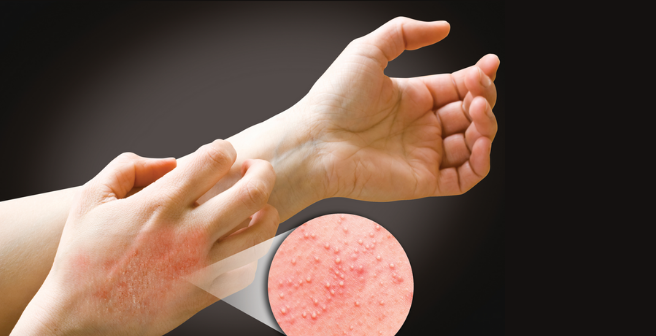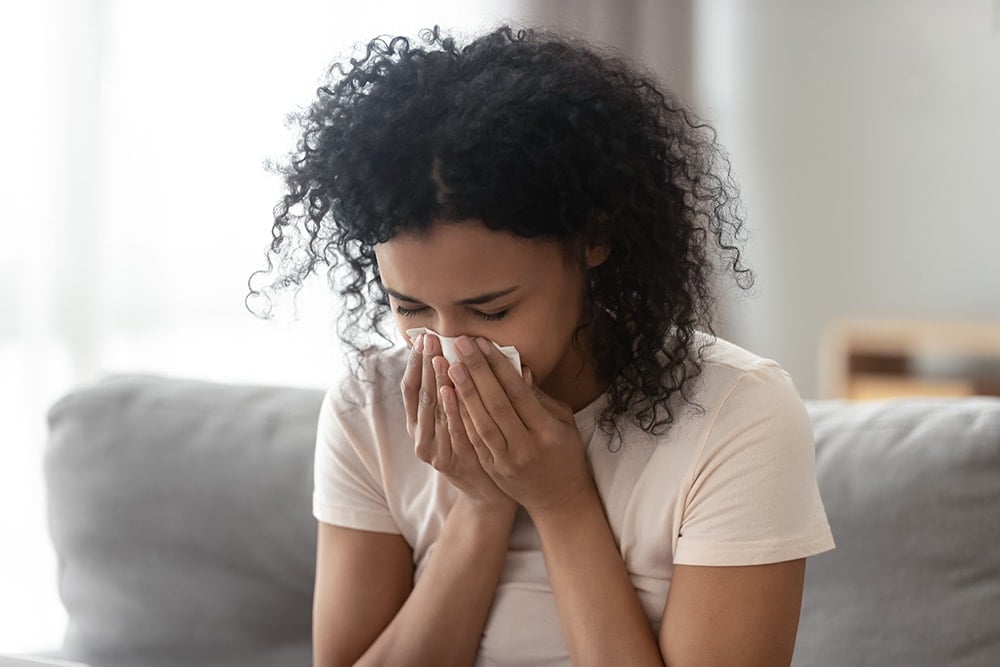Allergens are all around us. They are outdoors and even inside your home. You may think you are great at avoiding allergens outdoors, but you likely have some habits that trigger allergy symptoms at home. These symptoms may include sneezing, itching, coughing, and others. It’s important to drop certain habits to better manage allergy symptoms. Here are six habits to avoid this season.
Steamy Showers Encourage Mold
We understand that many people love the soothing effects of a hot, steamy shower. However, steamy showers encourage mold growth in your home. The American College of Occupational and Environmental Medicine (ACOEM) estimates that 10 percent of Americans are allergic to mold, and for about half of them, the allergy may result in an actual illness such as pneumonia. This is more common in children who have underdeveloped immune systems.
Another symptom of mold allergy is asthma. So, patients with allergies can actually experience a severe asthma attack from mold exposure. That’s why it’s essential to keep your home as dry as possible to prevent mold growth and manage allergy symptoms. If you do plan to continue taking steamy showers, we suggest utilizing the exhaust fan and keeping the bathroom door open if possible. This will allow some steam to escape.
Wearing Shoes Indoors Can Trigger Pollen Sensitivity
Pollen is not only found outdoors. You may be responsible for bringing it inside your home if you wear shoes beyond the front door. Shoes can track dirt and pollen. Pollen easily sticks to shoes and may trigger pollen allergy symptoms. Plus, dirt and dust promote dust mites.
Dust mites are a common allergen this season. Dust mite particles are airborne and can spread throughout your entire home. Be sure to have an area by your front door for shoes and outwear to prevent tracking dirt and pollen indoors.
Forgetting to Change Your Sheets Encourages Dust Mites
Dust mites thrive in warm, dark environments. They live in our mattresses and bedding and feed on dead skin flakes. You can reduce the number of dust mites in your bedding by changing and washing your sheets often. We recommend washing your bedding at least weekly using hot water and a high-heat cycle in the dryer to remove dust mite residue. You should also remove extra throw pillows and stuffed animals from your bed to minimize the surfaces on which dust mites can thrive.
Other tips to keep your bedding allergy-free is to use cotton sheets, which are less irritating to the skin than other fabrics. You may also want to consider using allergy-proof covers on your mattress and pillows. Don’t forget to replace your pillows at least every six months.
Cleaning Without Gloves May Cause Contact Dermatitis

Do you experience sore, red, itchy, or swollen skin after cleaning? You may be allergic to the chemicals in your cleaning products. Many household cleaning products and detergents are known to cause contact dermatitis, an allergic skin reaction. The reaction may last hours, days, or weeks. You should always wear gloves while cleaning or handling chemicals to prevent contact dermatitis.
We also recommend wearing a mask around chemicals as they can trigger asthma symptoms. Make sure your asthma medications are up to date. For any refills, contact your allergist at NY Allergy & Sinus Centers.
Using the Wrong Vacuum Cleaner Circulates Allergens
You may think that vacuuming often helps eliminate allergens. However, some types of vacuum cleaners just circulate allergens into the air which can worsen symptoms when inhaled. Instead of using a regular vacuum cleaner, choose one with a HEPA filter. HEPA filters are effective at suctioning smaller particles out of the air, allowing for a cleaner home. Try to vacuum at least once a week to keep allergens at bay.
Trying to Manage Allergies Alone Leaves Room For Improper Treatment
Did you know that many people actually use the wrong allergy medications for their symptoms? It’s also possible to overuse certain medications like decongestants that worsen symptoms. If you want the best allergy treatment, don’t try to manage your allergies alone. Consult with an allergist to better manage your allergy symptoms long term.
The allergists at NY Allergy & Sinus Centers have years of experience and expertise in treating allergies, asthma, and sinus conditions. We offer multiple allergy centers throughout NYC for your convenience. Call (212) 686-6321 or book an appointment online to start allergy treatment today!

